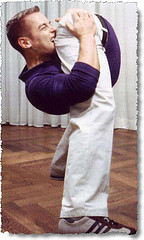A student’s overview to getting into a nursing career
Studying for a specialist career in the healthcare profession could be one of the best decisions you make. Nursing is a great career choice and a job for life paving for a satisfying career and a rewarding one which suits a variety of different skill sets. General nursing tends to focus specifically on a patients day to day needs and not the underlying reason for their situation.
Being a nurse does not restrict you to working in a hospital contrary to popular belief- schools, local surgeries and individual’s homes are just a few places you could find yourself working in depending upon the route you choose. Locum work is becoming more and more popular; working through an agency provides a good wage, alternated routine and flexibility of working patterns.
After finishing school the typical entry requirements for taking a foundation education course in nursing consist of 5 GCSEs at C and above inclusive of English and science subjects (this is a pretty standard entry requirement across many professions). Progressing further on the nursing career path, an honours degree is advisable and typically requires a candidate to have 2 equivalent A-Level qualifications, a degree allows you to begin or progress further up the employment ladder.
Your Career - Your Pathway
Starting out, you can begin working within the healthcare industry with limited qualifications as a healthcare assistant or associated support role, in this fashion you are able to work your way up the ladder and once you have the go ahead, it is possible to apply to do a college course or study for your degree in nursing.
The NHS (National Health Service) has made the process quite transparent and open to encourage a wide selection of applicants from all ethnicities, genders and backgrounds. After all not everyone completes their education, for whatever reasons.
Studying can be done part time and full time to suite the student, bearing in mind part time will typically double the expected course completion date. Part time is perfect for those with commitments such as young children or caring for a family member during the daytime.
Work experience
Before committing to a career in nursing and to enhance your CV, I would recommend seeking some work experience or volunteer with organisations such as the St. Johns Ambulance service. Work experience allows you to get hands on first hand practice within the field you might be making your life career in. Obviously because of the nature of this role you are likely to be watching, learning then following strict insurrections.
Work experience is offered by many Schools around the UK, for a period of one or two weeks a student doesn’t go to school but instead goes to work and gets this valuable training. Alternatively volunteer work can be carried out of an evening or weekend alongside studies or another part time position.
Work experience within a degree is often mandatory and students will find themselves working full shifts in busy environments such as hospitals, this is one of the best ways to pick up on the job training and skills.
Regardless of the route you select or are sent on, the great thing about nursing is the endless possibilities to enhance your career prospects, be mobile and enjoy a rewarding career choice where you help people while being paid a fair wage.
Isaac writes on behalf of several UK businesses on topics such as business, recruitment and education including Team24 who are a doctor jobs specialist – providing Nurse and Doctor Recruitment for a wide range of temporary placements.
| Be sure to look for us on your favorite networks: |
|---|
 |
 |
|---|
| Visit Our Bookstore for Great Values! |
|---|
 101 Tips Every Job Seeker Should Know |
 The Ultimate Online Job Seekers eBook |
 10 Biggest Interview Mistakes |
 10 Biggest Resume Mistakes |
|---|
| Check out these hot articles! |
|---|






![Higher Learning Leads to Higher Earnings, Especially for Men [InfoGraphic] Higher Learning Leads to Higher Earnings, Especially for Men [InfoGraphic]](../4022/4340939642_374fbff6e3_m.jpg)








